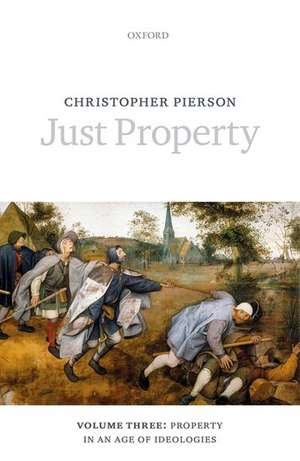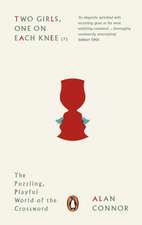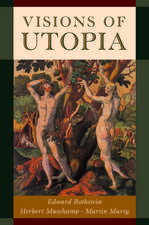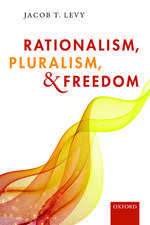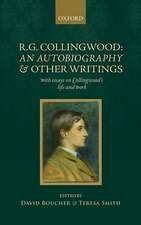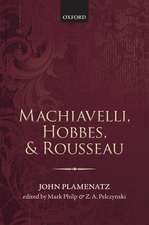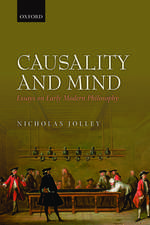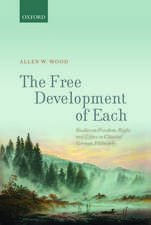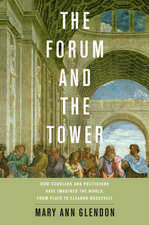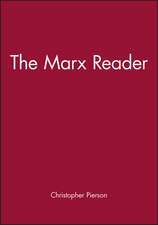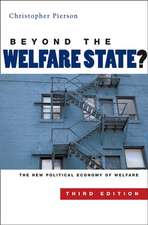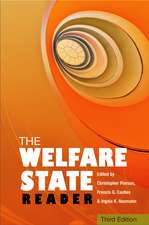Just Property: Volume Three: Property in an Age of Ideologies
Autor Christopher Piersonen Limba Engleză Hardback – mai 2020
| Toate formatele și edițiile | Preț | Express |
|---|---|---|
| Hardback (3) | 559.80 lei 31-37 zile | |
| OUP OXFORD – mai 2020 | 559.80 lei 31-37 zile | |
| OUP OXFORD – 22 sep 2016 | 563.47 lei 31-37 zile | |
| OUP OXFORD – 14 aug 2013 | 658.32 lei 31-37 zile |
Preț: 559.80 lei
Preț vechi: 758.17 lei
-26% Nou
Puncte Express: 840
Preț estimativ în valută:
107.13€ • 111.43$ • 88.44£
107.13€ • 111.43$ • 88.44£
Carte tipărită la comandă
Livrare economică 04-10 aprilie
Preluare comenzi: 021 569.72.76
Specificații
ISBN-13: 9780198787105
ISBN-10: 0198787103
Pagini: 354
Dimensiuni: 165 x 240 x 25 mm
Greutate: 0.65 kg
Editura: OUP OXFORD
Colecția OUP Oxford
Locul publicării:Oxford, United Kingdom
ISBN-10: 0198787103
Pagini: 354
Dimensiuni: 165 x 240 x 25 mm
Greutate: 0.65 kg
Editura: OUP OXFORD
Colecția OUP Oxford
Locul publicării:Oxford, United Kingdom
Notă biografică
Christopher Pierson has been Professor of Politics at the University of Nottingham since 1996. He has held visiting positions at the Australian National University, the University of California, Santa Barbara, Johns Hopkins University (Baltimore), the University of Auckland, and at the Hansewissenschaftskolleg in Lower Saxony. He has published extensively on the themes of the welfare state, the problems of social democracy and, over the last decade, on the politics of property.
Recenzii
Pierson takes the reader through the Greeks, the Romans, the early Christian church, the Medieval World, the early sixteenth-century, the later sixteenth century, natural law and natural right in the seventeenth century, and seventeenth-century radicals. While this list of topics indicates Piersons ambition, it does little to convey the impressive scholarship that he demonstrates throughout this magnificent book.
In sum, the book is an excellent resource in the history of ideas. Not only does Pierson engage directly with the texts -- from which he has drawn ample excerpts -- he is also engaged with later and present-day work interpreting those texts. In this sense the volume is a useful (though not comprehensive) exposition of the "state of the art" in present-day interpretation of a number of figures, not all of whom are household names ... a great service to political philosophers and others working in this field
Just Property amply illustrates, by historical example, why property should be at the core of political theory. The strength of Just Property is in how it combines rigorous scholarship with witty commentary that quietly celebrates Rousseau's 'heroic failure' and sighs at the German Idealists' knack for starting in all the wrong places.
In sum, the book is an excellent resource in the history of ideas. Not only does Pierson engage directly with the texts -- from which he has drawn ample excerpts -- he is also engaged with later and present-day work interpreting those texts. In this sense the volume is a useful (though not comprehensive) exposition of the "state of the art" in present-day interpretation of a number of figures, not all of whom are household names ... a great service to political philosophers and others working in this field
Just Property amply illustrates, by historical example, why property should be at the core of political theory. The strength of Just Property is in how it combines rigorous scholarship with witty commentary that quietly celebrates Rousseau's 'heroic failure' and sighs at the German Idealists' knack for starting in all the wrong places.
